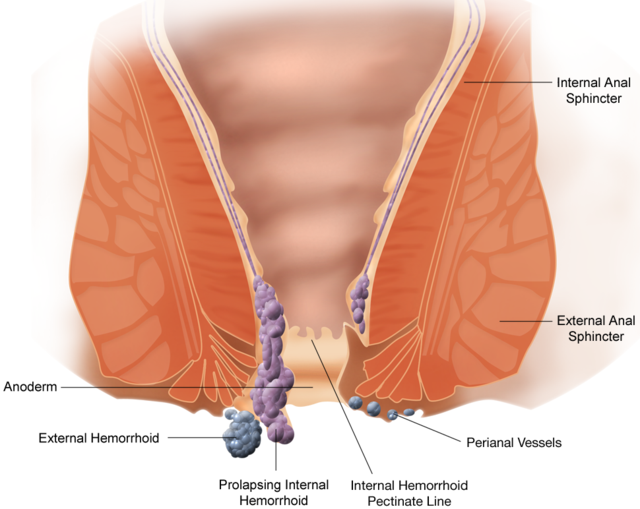Hemorrhoidal Disease

Hemorrhoids is one of the most common clinical anorectal diseases. The prevalence rate of hemorrhoids in China has exceeded 50% among adults and is estimated to be approximately 59% in pregnant women, presenting significant demand for treatment given its distracting symptoms of recurrent bleeding, pain and discomfort. Hemorrhoids may be internal, external or mixed, while internal hemorrhoids are classified into Grades I to IV depending on hemorrhoidal vessels’ prominence and severity of the prolapse.
Hemorrhoids therapies mainly include conservative therapy, device therapy and surgical hemorrhoidectomy. The conservative therapy targets patients with Grade I to IV hemorrhoids and may be used in combination with other therapies in all disease stages. The device therapy mainly treats patients with Grade I to III or surgically ineligible Grade IV hemorrhoids. The surgical hemorrhoidectomy is mainly for patients with Grade I to III hemorrhoids who received ineffective treatment with the conservative or device therapy. Rubber band ligation is the most frequently used device therapy owing to its low reoccurrence. Conventional surgical excision is still the most common surgical procedure for Grade III-IV hemorrhoid patients.
Some pain points of current hemorrhoids therapies in the market are as follows:
Patients’ low willingness to seek medical treatment
Patients with hemorrhoids typically have limited desire to seek medical treatment due to factors such as social stigma. The lack of early diagnosis and proper treatment leads to the deteriorating disease, making many patients with Grade III to IV hemorrhoids unable to seek other therapies except immediate hemorrhoidectomy. Moreover, hemorrhoids patients at a more advanced stage may resist seeing a doctor for fear of impaired quality of life resulting from surgical complications, such as bleeding and infection.
Limited medical education to patients
Many patients acquire medical information online and prefer home diagnosis. Those patients may follow instructions lacking support from evidence-based medicine. The limitation in medical education will not only prevent timely treatment of the patients, but also complicate the disease, making it even harder to treat and manage.
Limitations of traditional treatment methods
Traditional hemorrhoids therapies mainly include medication and surgery. The conservative treatment, such as medication and lifestyle modification, can only reduce inflammation or relieve symptoms and may not be suitable for patients such as pregnant women. Although surgeries have a shorter treatment cycle, bleeding and excessive pain may lead to lengthy post-operation recovery period with limited mobility and lower sleep quality.

